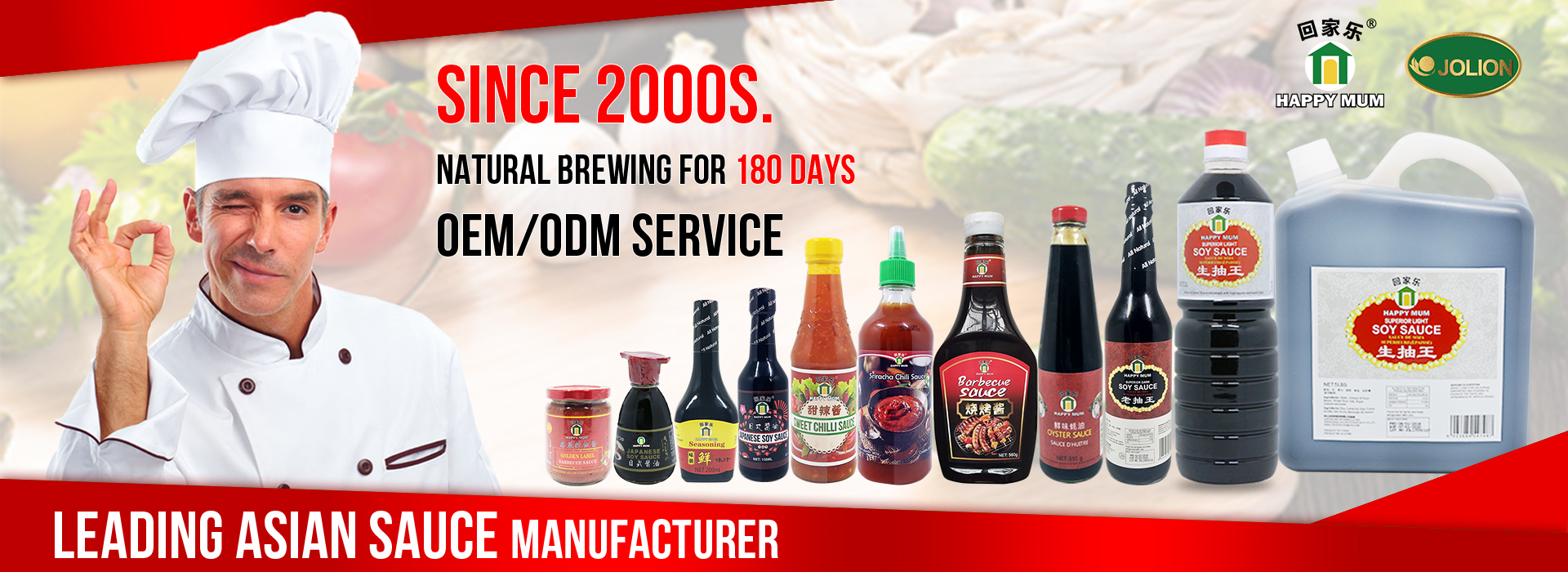
- Can I Put Sesame Oil on My Face?2026-02-04As the search for natural skincare solutions continues, many people are asking, "Can I put sesame oil on my face?" Sesame oil, derived from pure, selected sesame seeds, has been a staple in Asian cuisines for its rich flavor and health benefits.
- Can I Put Sesame Oil in Ramen?2026-02-04As culinary experimentation becomes more popular, many home cooks and chefs wonder, "Can I put sesame oil in ramen?" Sesame oil is a flavorful ingredient known for its rich, nutty taste, making it an excellent addition to many dishes.
- Can Diabetics Eat Sesame Oil?2026-02-04As health-conscious choices become increasingly important, many people wonder, "Can diabetics eat sesame oil?" Sesame oil has been a staple in various culinary traditions, especially in Asian cuisines, known for its rich flavor and numerous health benefits.
Curry Powder: Crafting, Usage, and Customized Solutions for B2B Partners
Curry Powder: Crafting, Usage, and Customized Solutions for B2B Partners
Curry powder, a iconic blend of spices that embodies the richness of global culinary traditions, has become a cornerstone ingredient in kitchens and food production facilities worldwide. From the vibrant curries of India to fusion dishes in Western restaurants, its complex flavor profile—balancing warmth, earthiness, and subtle heat—adds depth to countless recipes. For B2B entities such as food manufacturers, restaurant chains, catering services, and specialty food brands, mastering the art of high-quality curry powder crafting and leveraging its versatility can significantly enhance product differentiation and customer loyalty. This article explores the intricate process of creating premium curry powder, its diverse applications in B2B settings, and how tailored spice solutions can empower your business growth.
The Craft of Creating Premium Curry Powder
Unlike single-ingredient spices, curry powder is a carefully balanced blend that requires precise ingredient selection, proper processing, and meticulous mixing. The quality of each component and the ratio of spices directly impact the final flavor, making consistency and attention to detail critical—especially for B2B operations that demand uniform taste across large-scale productions.
1. Ingredient Selection: The Core of Flavor
Curry powder is a customizable blend, but it typically revolves around a set of core ingredients that define its character. The foundation often includes turmeric (for color and mild earthiness), cumin (warm and nutty), coriander seeds (bright and citrusy), and fenugreek (sweet and slightly bitter). Additional spices are added to create regional or specialty profiles: cayenne pepper or chili powder for heat, cardamom or cinnamon for warmth, mustard seeds for pungency, and fennel seeds for a subtle sweetness.
For B2B quality standards, sourcing high-grade, fresh spices is non-negotiable. Turmeric, for example, should have a vibrant golden hue to ensure both color and flavor potency, while cumin and coriander seeds should be plump and free of mold or stale aromas. Partnering with trusted suppliers who adhere to consistent harvesting and storage practices is essential to avoid flavor variations in bulk batches. Additionally, understanding regional preferences—such as the spicier blends for South Asian markets or milder, herb-forward mixes for Western audiences—helps tailor blends to specific B2B client needs.
2. Preprocessing: Unlocking Aromas
Preprocessing is a key step in elevating the flavor of curry powder, as it releases the essential oils of the spices. Most whole spices (such as cumin, coriander, and cardamom pods) benefit from dry roasting before grinding. This process involves heating the spices in a dry pan over low heat for 2–3 minutes, stirring constantly to prevent burning. Roasting enhances the nutty and aromatic notes of the spices, creating a more complex flavor profile. For heat-sensitive spices like turmeric or cayenne, roasting is skipped to preserve their color and subtle flavors.
After roasting, the spices are allowed to cool completely to avoid moisture buildup during grinding—moisture can lead to clumping and reduced shelf life. For B2B scale, automated roasting equipment with temperature control ensures uniform heating across large quantities, maintaining consistency batch after batch.
3. Grinding and Blending: Achieving Consistency
Once cooled, the spices are ground to the desired texture. The grind size varies based on intended use: a coarse grind works well for marinades or slow-cooked curries (allowing flavors to develop gradually), while a fine grind blends seamlessly into sauces, soups, and dry rubs. Industrial grinders with adjustable settings are used in B2B production to achieve precise, uniform texture—critical for food manufacturers who need consistent performance in their products.
Blending is the final and most crucial step in curry powder production. The ground spices are mixed in exact proportions to create the target flavor profile. For example, a classic Indian-style curry powder might have a higher ratio of turmeric and cumin, while a Thai-inspired blend could emphasize coriander and chili. Small-batch testing is essential to refine the ratio, especially for B2B clients with unique flavor requirements (e.g., low-sodium, heat-adjusted, or organic blends). Automated blenders ensure thorough mixing, preventing pockets of individual spices and guaranteeing uniform flavor in every scoop.
4. Storage: Preserving Freshness and Potency
Curry powder’s flavor and color fade quickly when exposed to light, heat, and moisture—turmeric, in particular, is prone to discoloration. To maintain quality, finished curry powder should be stored in airtight, opaque containers made of food-grade materials (such as stainless steel or BPA-free plastic). For bulk B2B storage, sealed drums or bins with moisture barriers are recommended. Labeling each container with the production date and expiration date (typically 6–9 months for optimal flavor) helps clients manage inventory and ensure freshness. It’s also advisable to store curry powder in a cool, dark pantry away from ovens or other heat sources.
Versatile Applications of Curry Powder in B2B Settings
Curry powder’s adaptability makes it a high-demand ingredient across diverse B2B sectors. Its ability to complement both meat and plant-based ingredients, as well as its appeal to global taste preferences, positions it as a versatile tool for businesses looking to expand their menu or product lines.
1. Restaurants and Catering Services
In the foodservice industry, curry powder is a staple for creating signature dishes and consistent flavor profiles. Casual dining chains use it to craft customer favorites like chicken curry, curry fries, and curry-infused salads. Fine dining restaurants leverage custom curry powder blends to develop unique fusion dishes—such as curry-glazed salmon or curry-spiced risotto—that set them apart from competitors. Catering companies rely on curry powder’s concentrated flavor to season large batches of food without sacrificing taste, making it ideal for corporate events, weddings, and buffet-style service. For example, a Mediterranean restaurant might use a mild curry powder blend in hummus or grain bowls, while an Asian fusion spot could incorporate a spicier mix into stir-fries.
2. Food Manufacturing
Food manufacturers integrate curry powder into a wide range of packaged products to meet consumer demand for global flavors. It’s a key ingredient in shelf-stable items like curry sauces, ready-to-eat curries, and spice mixes. Snack manufacturers use it to create trending products such as curry-flavored chips, nuts, and popcorn. Additionally, curry powder is increasingly used in plant-based products—including vegan curries, meat alternatives, and dairy-free dips—to add depth and umami. For frozen food lines, curry powder retains its flavor well during freezing and reheating, making it a reliable choice for convenience-focused products. Manufacturers also value curry powder for its natural color—turmeric provides a vibrant golden hue that reduces the need for artificial food dyes.
3. Specialty Food and Retail Brands
Specialty food brands and artisanal retailers often use unique curry powder blends to differentiate their offerings. Gourmet spice companies curate regional-specific blends (e.g., Madras curry powder from South India or Massaman curry powder from Thailand) to cater to culinary enthusiasts. Ethnic grocery stores stock curry powder tailored to their customer base, ensuring authenticity in home cooking. Additionally, meal kit services incorporate pre-portioned curry powder into their recipes, making global cooking accessible to home chefs. These brands rely on consistent, high-quality curry powder to build trust with consumers and encourage repeat purchases.

Elevate Your Business with Custom Curry Powder Solutions from Jolion
While standard curry powder blends work for general applications, B2B clients often require tailored solutions to align with their brand identity, target audience, and production needs. Whether you’re a restaurant chain developing a signature curry sauce, a food manufacturer launching a new snack line, or a specialty retailer curating ethnic spice blends, Jolion delivers customized curry powder that meets your exact specifications.
At Jolion, we specialize in creating bespoke spice blends for B2B partners. Our team of culinary experts and spice specialists works closely with you to understand your flavor goals, regional preferences, and operational requirements. We source premium, sustainably grown spices from trusted global suppliers, ensuring every batch meets strict quality and safety standards. Our flexible production capabilities accommodate small-batch testing (for recipe refinement) and large-scale production (for commercial launch), with quick turnaround times to support your timeline. We also offer custom packaging solutions—from bulk drums to branded consumer-sized containers—to help you streamline inventory and enhance brand visibility.
Ready to transform your menu or product line with custom curry powder? Browse our B2B spice solutions or contact our team today to discuss your unique needs. Jolion is your trusted partner for crafting high-quality, tailored spices that drive business success.
Start Your Seasoning Sauce Business by a Free Quote
GET FREE QUOTES
If you are interested in our services, let's have a try on the first project
